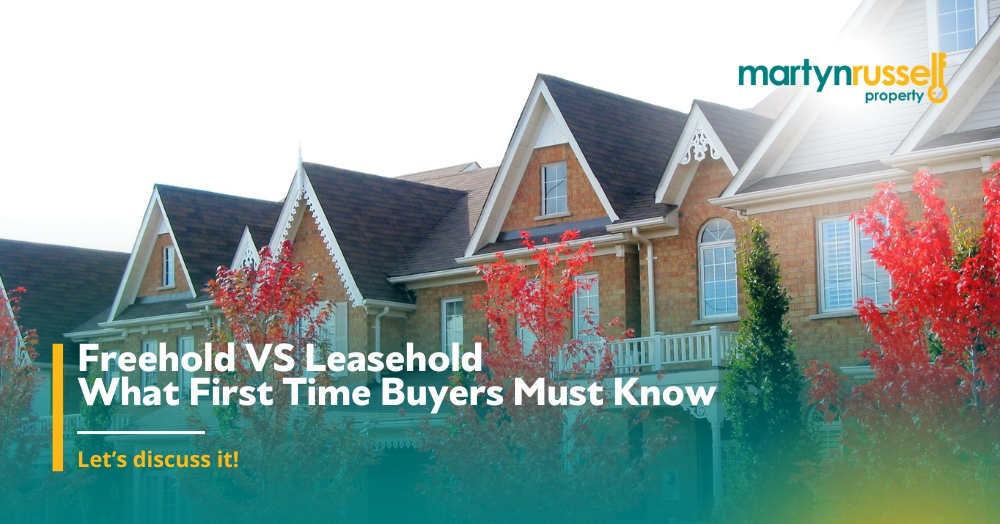One of the biggest questions first-time buyers face is whether to buy a freehold or a leasehold property. It sounds like boring legal stuff, but understanding the difference can save you headaches (and money) later on.
This guide breaks it down so you know exactly what you’re getting into.
What Is a Freehold Property?
With a freehold, you own the property and the land it’s built on. There’s no time limit on ownership. You don’t pay ground rent or service charges (unless you’re on a private estate with shared spaces). You’re fully responsible for maintenance, from the roof to the garden walls. Most houses in the UK are freehold, which makes them easier to sell and often more desirable.
What Is a Leasehold Property?
A leasehold means you own the property for a set number of years – not forever. The land it stands on is owned by the freeholder (landlord). Once the lease runs out, ownership returns to the freeholder unless you extend it. Leases typically start at 99, 125, or 999 years. You’ll pay ground rent and often a service charge for communal areas. Extending a lease can be costly, especially if there are fewer than 80 years left. Flats are almost always leasehold, and some newer houses have been sold this way too (though this is less common now).
The Key Pitfalls of Leasehold
Leasehold isn’t always a problem, but here’s where buyers trip up:
- Short leases – Anything under 80 years can be expensive to extend, and lenders might be reluctant to offer a mortgage.
- Rising ground rent – Some leases have clauses that double ground rent every 10 years, which can make the property hard to sell.
- Service charges – These cover communal upkeep, but costs can vary wildly and sometimes feel unfair.
Which One Is Right for You?
If you’re buying a house, freehold is usually best – simple, clean, and no ongoing fees. If you’re buying a flat, leasehold is normal, but check the lease length, ground rent terms, and service charge before committing. If you’re unsure, ask your solicitor to explain the fine print in plain English.
FAQs for First-Time Buyers
1. Can I buy a leasehold property as my first home?
Absolutely, but make sure the lease length is healthy (80+ years) and that ground rent and service charges are reasonable.
2. How much does it cost to extend a lease?
It varies depending on the property value and remaining lease length. Extending before it drops below 80 years is much cheaper.
3. Can leasehold service charges go up?
Yes, service charges can increase to cover maintenance or improvements to communal areas. Always review past statements before buying.
4. Should I avoid leasehold altogether?
Not necessarily. Leasehold flats are common and can still be a great first home. You just need to understand the terms and costs involved.
Final Word
The freehold versus leasehold question isn’t as complicated as it sounds. Freehold gives you full ownership and control, while leasehold means you’re sharing responsibility and costs. The key is to know exactly what’s in the paperwork before you sign.
CTA
If you’re weighing up which type of property suits your budget, use our MAB calculator to get an idea of your affordability.
